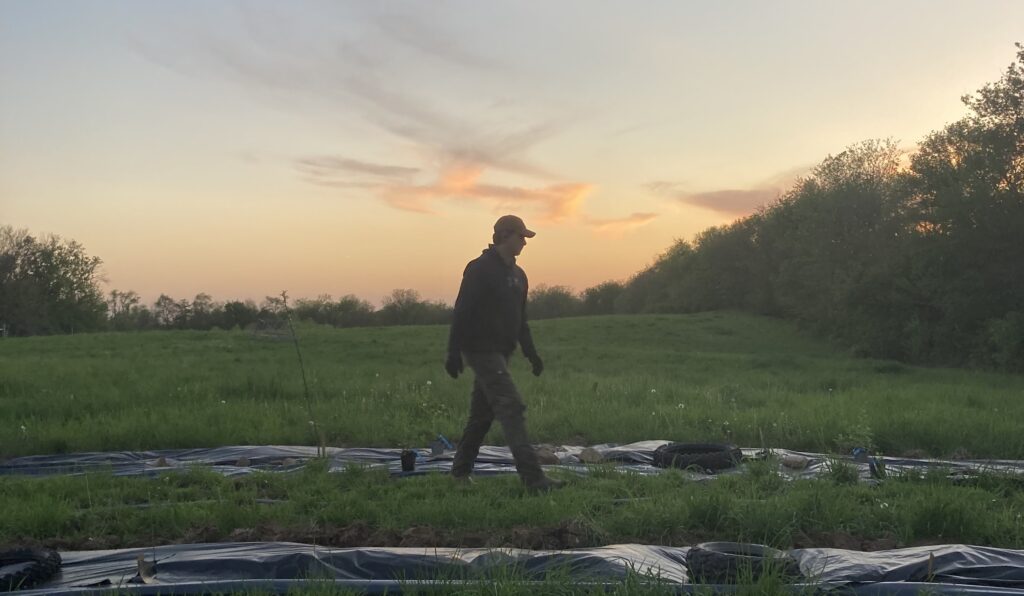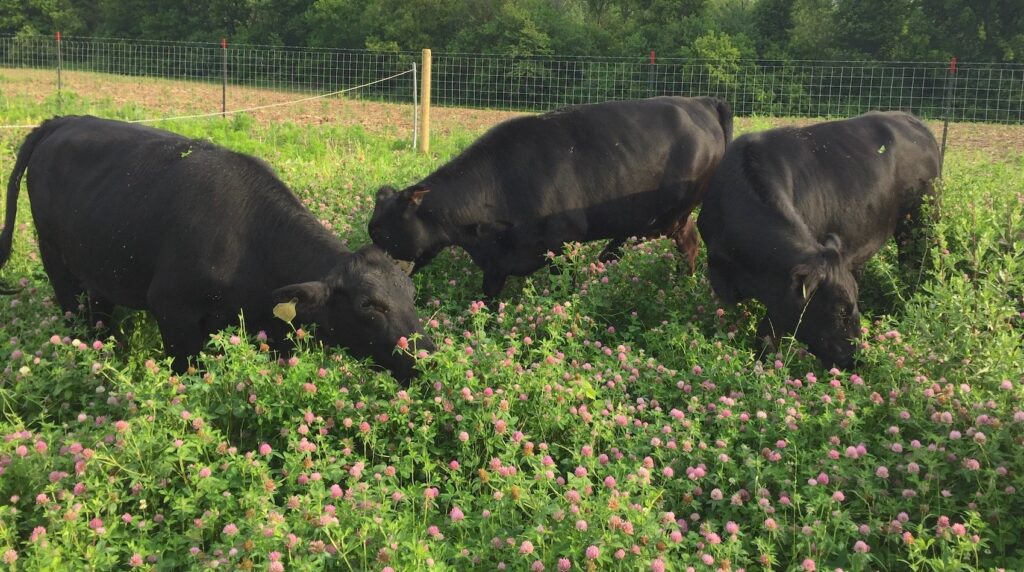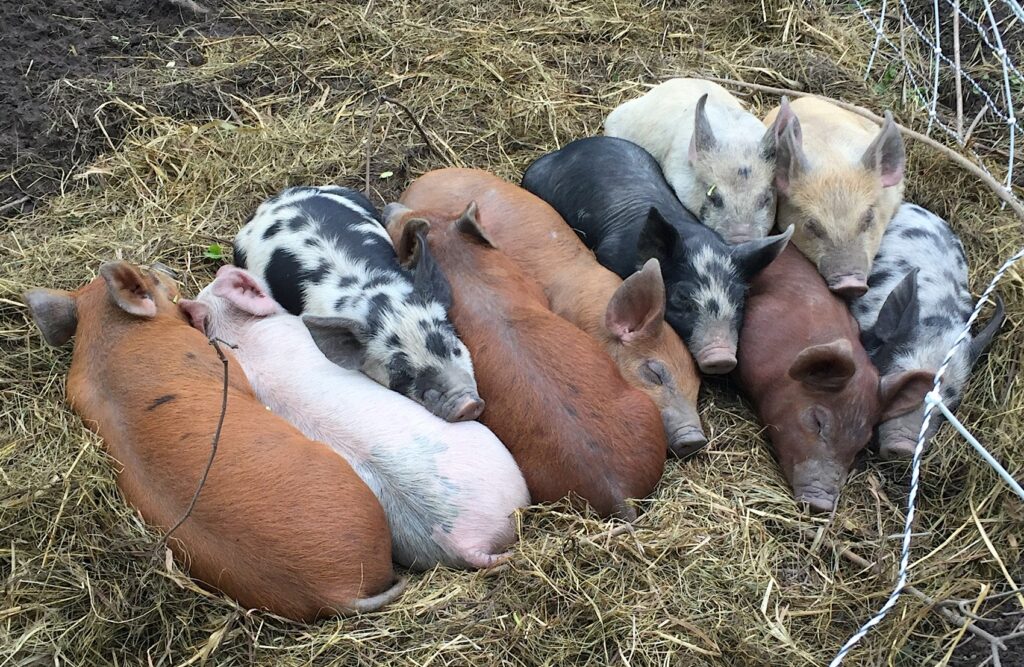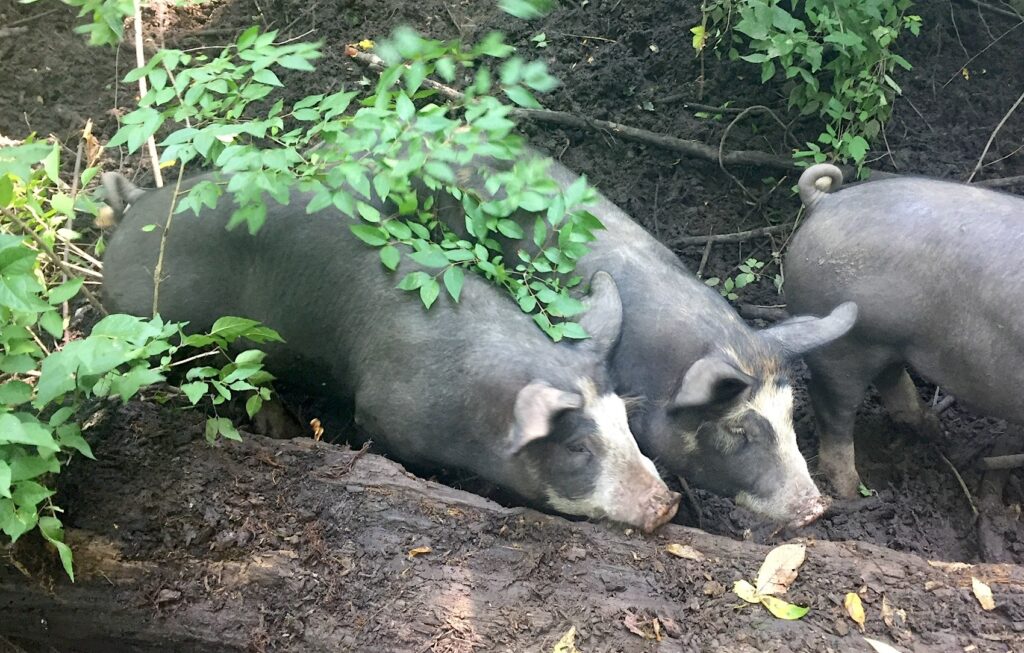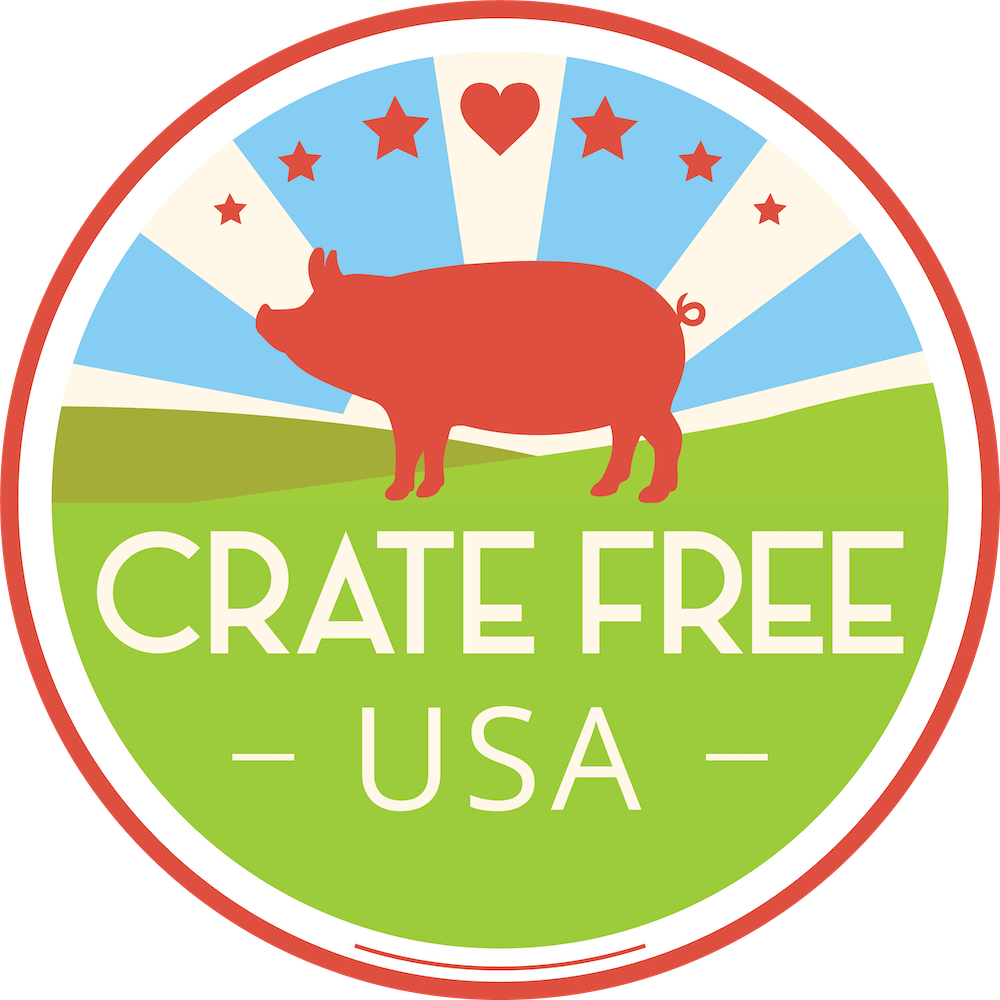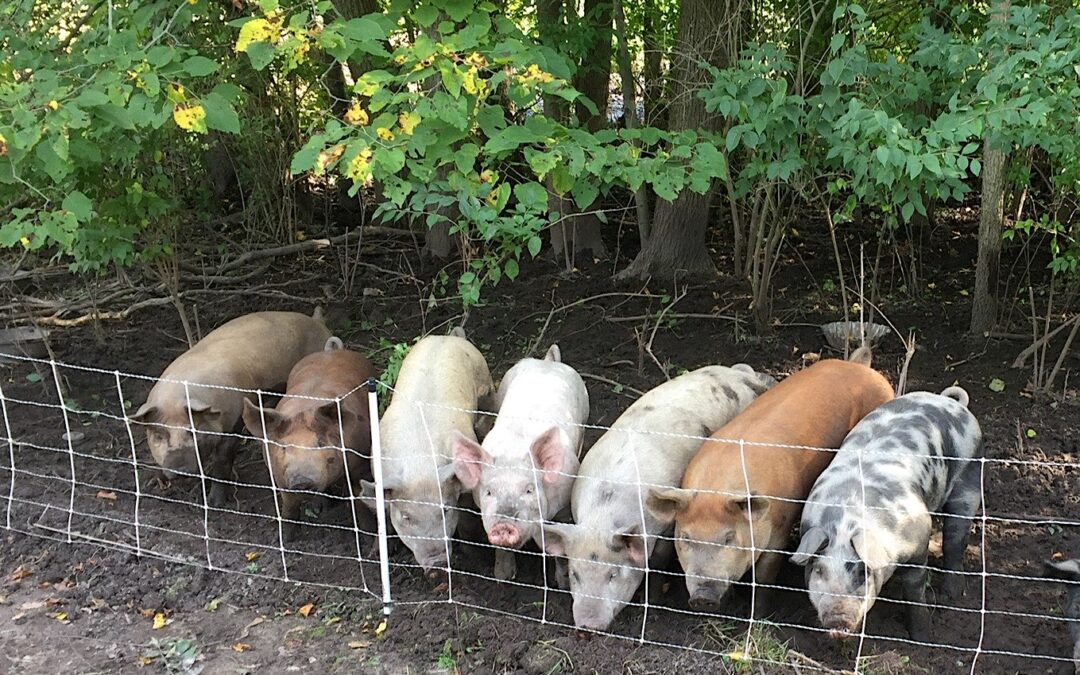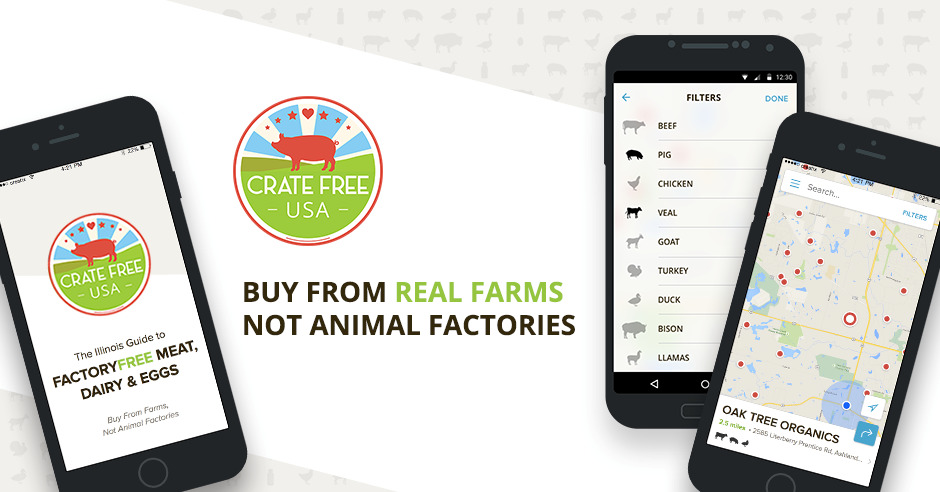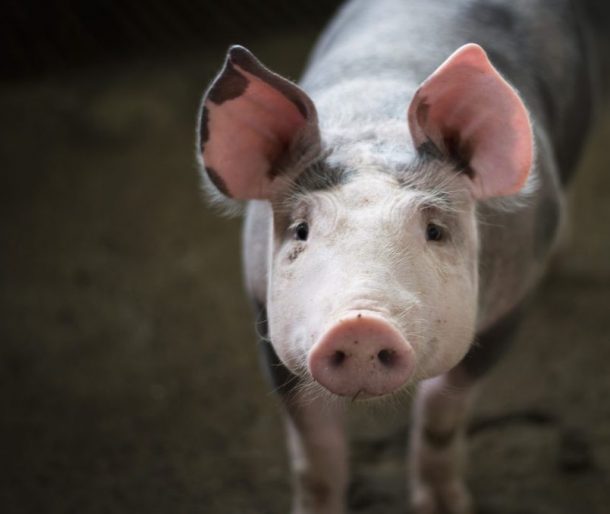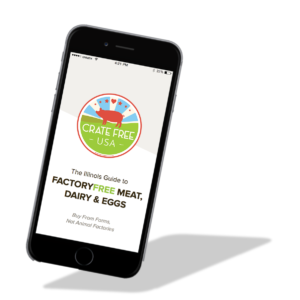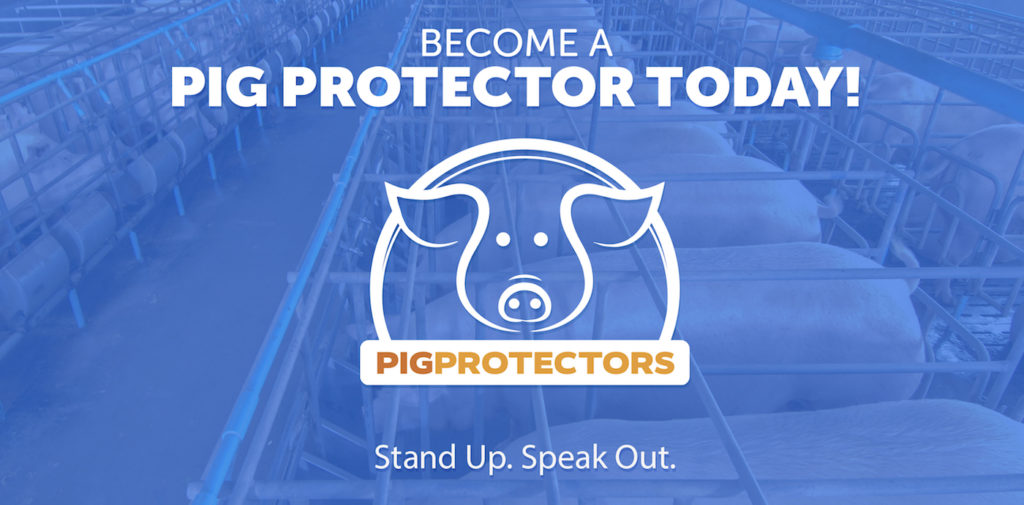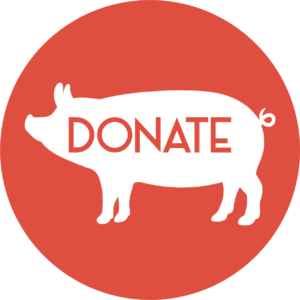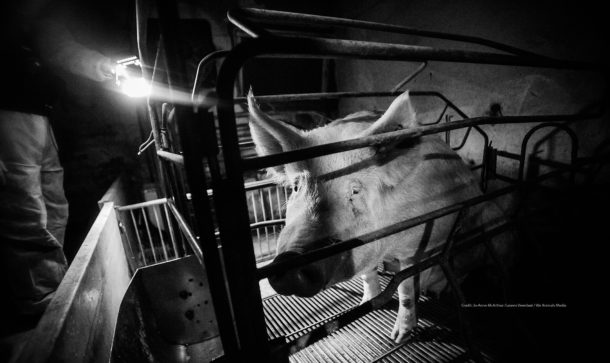At Crate Free USA, our mission is to improve the lives of animals raised for food. And since the vast majority of Americans still eat meat, the best way to do this is to shop from local farmers who care about the animals they raise far more than the huge factory farms and corporations who own so much of the food industry today. While we do promote a reduction of meat in your diet, we also support our local farmers who raise animals more humanely and sustainably.
It’s easy for you to find a local, sustainable farmer near you in Illinois.
Just download our free mobile app!
Root & Sky Farm was founded in 2017 in Marengo, Illinois. Their mission is to participate in the renewal and restoration of land hunted by the Potawatomi and for decades cultivated by the great 19th-century bee-keeper C. C. Miller. According to their website their goals are:
-
-
To help grow and raise just, delicious food that can help people eat in ways that align with their values.
-
To build welcoming, diverse communities of neighbors, farmers, and artists.
-
To pursue sustainable farming methods in a changing climate.
Tell us about your farm: (kind of animals? Rough size of farm? Cage-free? Pasture raised?)
Root & Sky Farm is a small family farm in Marengo, IL that was started in 2017 with twelve acres of gently rolling pasture and thirty-five acres of forest. We rotate cattle, chickens, and turkeys through the pasture, while the pigs and ducks are raised in the forest, and the katahdin sheep spend time in both the pasture and the forest. We use portable fencing and netting to rotate the livestock to help distribute manure, limit parasite pressure to keep the animals healthy. In addition to what the chickens, ducks, and pigs find in their paddocks, they are given organic feed. We have also started a small permaculture orchard to further diversify the farm.
How did you first become involved in farming?
My family and I were living in the suburbs or Chicago and I started making my own cheese and yogurt with milk supplied through a co-op from central Illinois. I enjoyed the process of cheese making so much that I started to wonder if we could raise our own animals, so I found an internship on a livestock farm to see if I enjoyed the labor and care needed to run a farm. That internship led to a job on the farm, and then our search for a farm of our own. After about three years, we found a farm that was once owned by C.C. Miller, a 19th century bee-keeper who at one time produced the most honeycomb in the USA and has published multiple books. The property was neglected for years, so we are trying to slowly bring it back to a productive farm.
Why is farming sustainably and humanely important to you?
When we purchased our farm it was in a corn and soy rotation. There was no life in the soil or on the farm. After giving a local farmer a tour of the land he mentioned thirty years ago it was a hay field, and he was shocked with the amount of erosion that has taken place without the grass and other vegetation to hold the soil in place. After two years we were able to convert all tillable land to pasture, and even after that first year we found earthworms, frogs, and ground-nesting birds in the pasture. When you are farming sustainably, you obviously are caring for the livestock that helps you earn an income, but you also can see the land transform while other native animals are thriving on your land that were void of life.
Livestock on our farm are either going to be food for people in our local area, or they are parents to the livestock that will soon be our food. We take processing day seriously, and we thank the animals for the time they spent with us. We hope to give the animals a situation that is low stress , allows them to soak in the sunlight, and feel a breeze on a warm day. We feel the livestock on our farm deserve to be humanely treated for the sacrifice they will make for us.
How have the economics of farming changed in the last several years and how has it affected you?
What further changes are you anticipating?
The cost of our feed has gone up more than 25% in the last year, and inflation is also playing a role in the rise of costs of raising livestock with processing increases, gasoline costs, feeder livestock costs, etc . Raising prices on our products is always a concern because we do want to offer products that people can afford while still earning a small income.
What are your views on extreme confinement and gestation crates for pigs?
For a country that invests and cares so much about their cats and dogs, I think it really shows the separation the consumer has from the food they eat that
extreme confinement is overlooked by the general population.
If people were able to look into the eye of a pig, and understand that it is not just a piece of pork in a plastic wrapped package, but a highly intelligent animal that has personality, can show joy, or play with her littermates. I think if a person was able to visit a farm where they are raised in a humane way, how could you then accept gestation crates for such an animal?
Would you support a bill to extreme confinement?
Why or why not?
I would support a bill to end extreme confinement. I think people could pay a few cents more per pound to give the pigs slightly more dignity while they help feed us.
What is your current slaughter process?
What do you think about mobile abattoirs and is that something you would potentially use?
We drop off our livestock at semi-local processors. We are required to get our processing dates on June 1st of the prior year of when we process. That means we are required to get dates before the sheep is even pregnant! Also, if we have trouble getting a cow on a trailer and you miss the date for the animal, you could be out of luck. There is a need for more local processors, especially with an increase in small producers trying to raise food for themselves or others.
I would absolutely consider a mobile abattoir if state or USDA inspected, which is a requirement for us to sell meat in Illinois. It should be lower stress for the animals to stay on the farm, and lower stress for the farmer.
What can consumers do to help improve the lives of all our farm animals?
I think voting with your wallet and food education is the most effective way to create change. If enough people
bought from local farms, or farms at grocery stores [do your own research!] that claim to use more humane practices, more animals will be in the systems that show care for the animal’s welfare.
Grass-fed beef and pastured eggs in grocery stores have become more mainstream products [but
labels can be misleading!], which should lead to healthier lives for those livestock in those businesses. Buying from your local farmer is still best if you care in what country your meat was raised. Current law states that the only requirement to label meat as a product of the USA is that it is cut up in the
USA. A cow could have spent its whole life in Brazil, and gets packaged in Georgia and it’s stamped USA meat.
How do you market and sell your products?
How can people shop with you/find you? Can they visit the farm?
We sell our products at the Woodstock Farmers Market, monthly home delivery in the Chicagoland area, and farm pickup. We send out a monthly newsletter with delivery, product sales, and farm updates:
The Illinois Guide to FACTORY- MEAT, DAIRY, & EGGS
As always, to find a local farm farm near you, please
download our app, The Illinois Guide to Factory-Free Meat, Dairy, and Eggs. Here you can buy direct from a local, sustainable farmer, not animal factories. Use the app to search for local farms, farmers markets, and restaurants that source humanely raised meat, dairy, and eggs.
